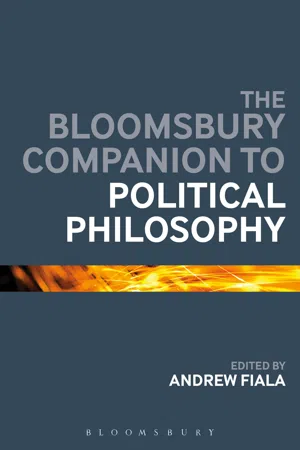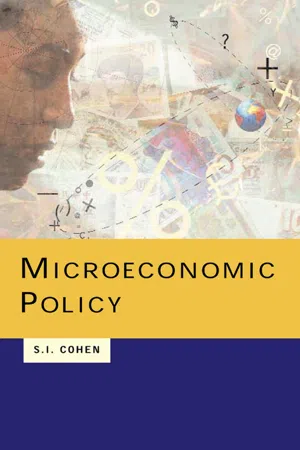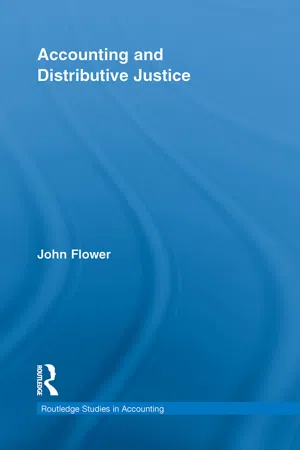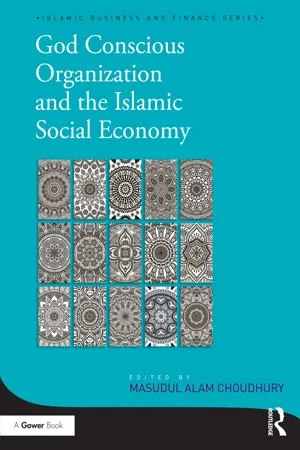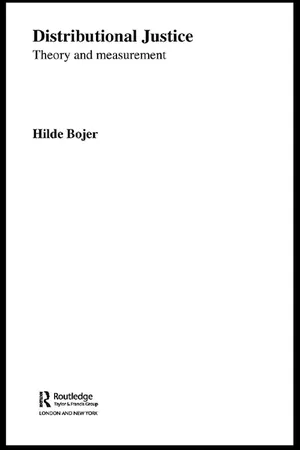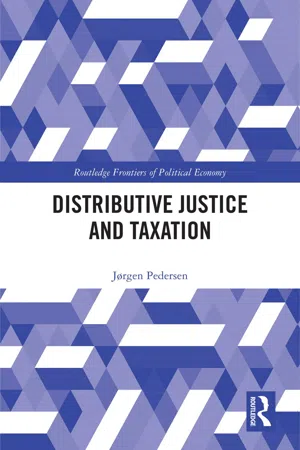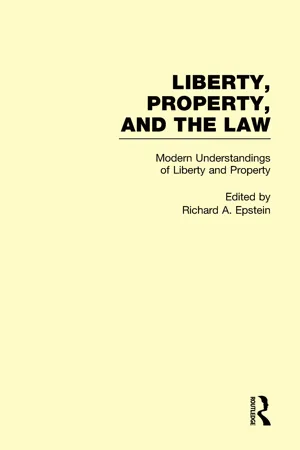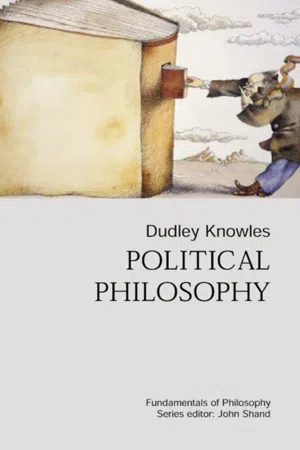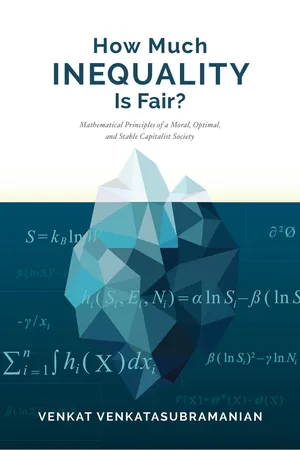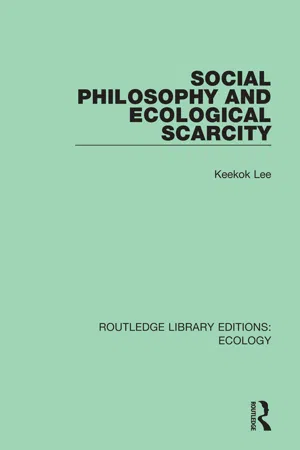Economics
Equitable Distributions of Income
Equitable distribution of income refers to the fair allocation of income among individuals or groups within a society. It aims to reduce income inequality by ensuring that wealth and resources are distributed in a way that is considered just and fair. This concept is often a focus of economic policies and discussions on social justice.
Written by Perlego with AI-assistance
Related key terms
12 Key excerpts on "Equitable Distributions of Income"
- eBook - ePub
- Andrew Fiala, Andrew Fiala(Authors)
- 2015(Publication Date)
- Bloomsbury Academic(Publisher)
For those who consider distributive justice not only as a theoretical issue but also as a policy that should be applied, governmental action is acutely necessary for promoting justice. However, governmental control of the just distribution of benefits and burdens, as well as policy that aims at promoting distributive justice are not the only means for achieving this aim. Indeed, the state as the major framework within which people consider themselves as sharing common (and often mutual) obligations and loyalties is the main factor in regulating the distribution of benefits and burdens among its citizens, first and foremost through legislation and official practices, statutes, and policy. But a significant role in reducing social and economic inequalities in society is fulfilled by nongovernmental and private bodies and organizations.Many social and economic practices have their roots in the idea of distributive justice, and they became so frequent and familiar that their comprehensive acceptance causes us to forget their principal grounds. The idea of differential taxation, which takes a larger share of taxes from those who earn more and exempts those who earn a minimal wage, or even the whole idea of social security, expresses the concept of distributive justice. In Rawlsian terms, we have already inserted certain requirements of distributive justice into the basic structure of society.However, there are other, more controversial, policies, such as affirmative action programs (either through hiring for desired positions or through the acceptance of members of deprived groups to prestigious programs in higher education institutions), became familiar practices in society, while being backed, promoted, and even supported by governments. Another controversial practice is the estate tax or inheritance tax - eBook - ePub
- Solomon Cohen(Author)
- 2000(Publication Date)
- Routledge(Publisher)
Chapter 7 Distribution: income policies and endowment strategies 7.1 Introduction Welfare economics postulates that for a given income distribution, the market mechanism will result in an economically efficient outcome; that is, costs will be minimized while satisfaction will be maximized. However, the mechanism can provide as many technically efficient outcomes as there are possible distributions of income and wealth. An implicit assumption is required that the existing or some other distribution of income and wealth is ‘fair’ or ‘equitable’. It has been suggested that a fundamental weakness of welfare economics is its apparent inability to choose between these possible outcomes so as to come to an agreement about what ‘fair’ distribution is. The normative problem of what constitutes a ‘fair’ distribution rests upon what is meant by ‘fairness’. Is there such a thing as an objectively fair or equitable distribution of income and wealth? The next section deals with these issues. Other sections deal with the positive explanation of income distribution and with policies which bridge the gap between the normative and the positive. 7.2 Normative approaches What is fair? For a very long time this question has been at the heart of political and moral philosophy, and has prompted economists and non-economists to formulate alternative social welfare functions (SWF). It would be highly presumptuous to think that any general agreement has been found on an answer to this question. This does not mean, however, that deliberations have not brought a better understanding of the question. Much has been learned and economists are now in a position to choose between workable approaches. Normative theories of distributive justice represent sets of principles against which the economist can test whether a particular distribution of economic well-being is fair - eBook - ePub
- John Flower(Author)
- 2010(Publication Date)
- Routledge(Publisher)
2 Distributive JusticeThe conclusion of the previous chapter was that, in the present circumstances, the principal objective of economic activity should be the just and fair distribution of output. This chapter discusses the meaning of a just and fair distribution (for example how to divide output between George and Henry), turning to the writings of philosophers for guidance.The branch of philosophy that deals with the distribution of wealth and income among society’s members is known as distributive justice.1 For the purposes of this book, I propose the following definition: ‘[D]istributive justice is justice in the distribution of the costs and benefits of economic activity among the members of society.’2 In general, philosophers do not accept the absolute supremacy of the economic objective of the maximization of the material standard of living. For example, the American philosopher John Rawls writes:It is a mistake to believe that a just and good society must wait upon a high material standard of life [ … ] great wealth is not essential. In fact, beyond some point it is more likely to be a positive hindrance, a meaningless distraction at best, if not a temptation to indulgence and emptiness.3But, there is widespread agreement among philosophers that it is worthwhile to seek to improve the standard of living of the most disadvantaged. However there is much disagreement on the priority to be given to this objective. The source of this disagreement is a fundamental difference of opinion among philosophers as to the weight to be attached to two desirable social values: equality and liberty - Masudul Alam Choudhury(Author)
- 2016(Publication Date)
- Routledge(Publisher)
ihsan.Distributive justice from the social perspective refers to the fairness of allocation of resources. This attribute contrasts with procedural justice, which focuses on the fairness of the decision-making aspects of the process. The theory of distributive justice propounded by humans draws from the work of Aristotle, who equated justice with a proper ratio of contributions to rewards, where each person receives returns that are commensurate with his investment (Homans, 1961). Homans contends that distributive justice always entails comparison by the parties of the contributions each makes and the reward each receives. The concept propounded by Homans is widely accepted. Equity theory conceives of social interaction as a series of exchanges and just distribution which are both considered as a major dynamic of these exchanges. Social scientists believe that every culture has its own institutionalized system for apportioning resources among its members. Such measures may vary across cultures (Ahmad and Hassan, 2000). As per the above discussions, it is clear that equity is considered as the rational selection of a just distribution and it is the unambiguously dominant concept in many societies in the world. A survey undertaken by Jasso and Rossi (1977) in the USA for discovering norms of distributive justice confirmed that justice should be judged in terms of an individual’s education, occupation, gender, number of children and marital status. They considered justice matching rewards with investments with some adjustment for needs.Apart from equity, social scientists have considered other forms of justice like need and equality (Leventhal, 1976). However, there are different forms of ideas of justice from the social perspective. But there are three independent justice norms which are closely linked with the allocation of resources. These are equity, equality and need (Greenberg and Cohen, 1982). These three basic principles are outlined here in relation to the topic that is under discussion.- eBook - ePub
- Hilde Bojer(Author)
- 2005(Publication Date)
- Routledge(Publisher)
Some excursions into wider issues is nevertheless unavoidable. Justice in distribution is a societal concern and the provision of justice in distribution is the responsibility of the state. There may be conflicts between justice in distribution on the one hand and individual rights and freedom on the other. Whoever demands justice in distribution must of necessity accept that the state be given the power to implement such justice. Several of the theories to be discussed in the sections that follow deal with theories of justice in distribution as a part of a wider theory of the just society.Economic goods
Distributional justice is justice in the distribution between persons, of goods that are scarce and transferable; which I shall call economic goods. It is about scarce goods because the question of just distribution does not arise where there is abundance: enough for every one. Moreover, the concept of distributional justice only makes sense for transferable goods: goods that it is possible to take from one individual and give to another. Many goods that we regard as important are neither scarce nor transferable. Health, intelligence, musicality and other talents are not transferable, nor is happiness. But some non-transferable goods may be acquired by means of goods that are transferable. Good nutrition as well as medical care fosters health. There is a well-established connection between poverty and ill-health. The effects of a physical disability such as blindness may be mitigated by the transfer of economic goods, for example the means to keep a guide dog and to acquire books in Braille. Conceivably, a lack of non-transferable goods may also be compensated for by transferable goods.The distribution of economic goods is not the same as the distribution of monetary income. The distribution of income decides the distribution of goods that can be bought with money in the market, but there are important economic goods that are not so available. In all modern countries, some economic goods are distributed in kind by the government to the citizens. This distribution varies from state to state, from nation to nation. Defence, courts of law and police are the responsibilities of government everywhere (for good or ill), as is at least some part of the physical infrastructure such as roads, harbours and airports. The provision of other parts of the infrastructure (water, energy) as well as the provision of education, health care, social insurance are available from the public and/or the private sector in varying combination. The extent to which economic goods should be provided in kind by the government, and how they in this case should be distributed, is an issue of distributional justice. - David Boonin, David Boonin(Authors)
- 2018(Publication Date)
- Palgrave Macmillan(Publisher)
Part V Justice and InequalityPassage contains an image
© The Author(s) 2018Begin AbstractDavid Boonin (ed.)The Palgrave Handbook of Philosophy and Public Policy https://doi.org/10.1007/978-3-319-93907-0_3131. Principles of Distributive Justice
End AbstractJeppe von Platz1(1) University of Richmond, Richmond, VA, USAJeppe von PlatzIntroduction
Economic inequality is growing, globally and in many individual countries. Once again, the United States leads the list. Here, the top one percent own more than a third of the total wealth and receive more than a fifth of total pre-tax income. The top quintile own almost 90 percent of the wealth and receive almost two-thirds of total income.1 The savings of the top 100 CEOs outsize the total retirement savings of about 40 percent of the population.2 It is harder to measure economic inequality on the global scale, and there are disagreements about how it should be measured, but by most measures, the trend is toward increased inequality.3 Is the world increasingly unjust because it is increasingly unequal? Facts alone carry no normative judgment; to ascertain the justice of situations and developments, we need principles of distributive justice.Principles of distributive justice are normative principles that guide our perception and judgment by telling us what facts to care about and when and why these facts reveal justice or injustice in the distribution of some good or burden. Principles of distributive justice bridge the gap between basic normative categories of right and wrong and facts about our social world; they guide our attempts to build more just societies.Different contexts call for different principles of distributive justice. How should we distribute the candy among the kids? Usually, an equal division is better, both because there is no reason to favor one over the other and because inequality may lead to social unrest. How should we distribute medicine when an epidemic rages? Surely we should give to the sick (those in need) rather than to the healthy. How should the professor distribute grades in her class? According to merit . How should we distribute dance partners at the club? We shouldn’t; people should be free to dance with those they want to dance with who also want to dance with them. Different principles apply in different contexts, and it makes little sense to say that because a principle seems to govern in one context, it should also govern in other contexts—to distribute dance partners at the club according to merit or need would not bring about a more just world (or club) but would destroy the fun and scare away the customers. Likewise, it might be tempting to distribute grades in the class equally or according to need, but it would not be more just and would diminish the informational value- eBook - ePub
- Jørgen Pedersen(Author)
- 2020(Publication Date)
- Routledge(Publisher)
Inequality, justice, and redistribution This book is about inequality, justice, and redistribution. My main goal is to present and discuss different theories of justice, and tie these to the question of what constitutes just taxation.How goods are distributed in society has major consequences for the lives of individuals. Political decisions affecting this distribution are made continually. Should we increase child benefit? Increase the fuel tax? Introduce or abolish the inheritance tax? Frequently, decisions on such questions are made with a view to what constitutes a just level of inequality. Many agree that if inequalities in the distribution of goods are large, this is unjust, and something to be acted on. However, there is disagreement about whether inequality is a problem, why it might be a problem, what, if anything, counts as too much inequality, and why, if at all, we should respond to inequality by redistributing goods.If redistribution is justified by an appeal to reducing inequality, we call this an egalitarian justification. From an egalitarian perspective, it is the difference between what some have and what others have that is problematic (Scanlon 2018:1). The argument of democratic equality is sometimes presented as an egalitarian justification for combating inequality. This argument begins by noting that citizens in democratic societies are free and equal, and must therefore be ensured equal opportunity to influence the political processes and to achieve political positions. Large economic inequalities are seen as problematic in this regard because those with large economic resources can achieve greater political influence than others, or so it is claimed.1Another common justification for redistribution is to reduce or eliminate poverty. If reducing poverty is the main justification for redistribution, it is not the difference - eBook - ePub
Modern Understandings of Liberty and Property
Liberty, Property, and the Law
- Richard A. Epstein(Author)
- 2013(Publication Date)
- Routledge(Publisher)
structural principle(s) of just distribution. A utilitarian who judges between any two distributions by seeing which has the greater sum of utility and, if these tie, who applies some fixed equality criterion to choose the more equal distribution, would hold a current time-slice principle of justice. As would someone who had a fixed schedule of trade-offs between the sum of happiness and equality. All that needs to be looked at, in judging the justice of a distribution, according to a current time-slice principle, is who ends up with what; in comparing any two distributions one need look only at the matrix presenting the distributions. No further information need be fed into a principle of justice. It is a consequence of such principles of justice that any two structurally identical distributions are equally just. (Two distributions are structurally identical if they present the same profile, but [perhaps] have different persons occupying the particular slots. My having ten and your having five, and my having five and your having ten are structurally identical distributions.) Welfare economics is the theory of current time-slice principles of justice. The subject is conceived as operating on matrices representing only current information about distribution. This, as well as some of the usual conditions (e.g., the choice of distribution is invariant under relabeling of columns), guarantees that welfare economics will be a current time-slice theory, with all of its inadequacies.Most persons do not accept current time-slice principles as constituting the whole story about distributive shares. They think it relevant in assessing the justice of a situation to consider not only the distribution it embodies, but also how that distribution came about. If some persons are in prison for murder or war crimes, we do not say that to assess the justice of the distribution in the society we must look only at what this person has, and that person has, and that person has . . ., at the current time. We think it relevant to ask whether someone did something so that he deserved to be punished, deserved to have a lower share. Most will agree to the relevance of further information with regard to punishments and penalties. Consider also desired things. One traditional socialist view is that workers are entitled to the product and full fruits of their labor; they have earned it; a distribution is unjust if it does not give the workers what they are entitled to. Such entitlements are based upon some past history. No socialist holding this view would find it comforting to be told that because the actual distribution A - eBook - ePub
- Dudley Knowles(Author)
- 2006(Publication Date)
- Routledge(Publisher)
Chapter 5 Distributive justice
In this chapter we shall address the problem of distributive justice, the vexed issue of how wealth and income, goods and services should be distributed or allocated amongst the population of a state. There are many candidate principles that may be applied, some of which I discuss explicitly in what follows, but before we advance any further, I should bring to your attention a restriction which I have placed on this investigation which you may well judge to be arbitrary. For many, the problem of social justice amounts in practice to the social question of how a society should cope with poverty, assuming that the poor are always with us, that even in the richest nations pockets of seemingly uneradicable poverty exist alongside extremes of wealth. This was noticed by the earliest philosophers to observe the social mechanics of developing capitalism. Hegel, to take one example, tells us that ‘civil society affords a spectacle of extravagance and misery as well as of the physical and ethical corruption common to both’.1But if the co-existence of great wealth and deep poverty is a problem within states, it is a much greater problem between states or between the peoples of different states. In the face of these dismal facts, one important philosophical question is this: are these different problems – one of social justice, say, the other of global or international justice – or are we confronted by the same problem arising in different contexts? Relatedly, are the philosophical principles which one might employ to judge the justice of these different manifestations of radical inequality the same in each case or are different principles needed to address them and to prescribe redistribution where that is deemed necessary? It is fair to say that the problems of international distributive justice are in their academic infancy, though already one can identify utilitarian, Kantian and contractualist approaches.2 - eBook - ePub
How Much Inequality Is Fair?
Mathematical Principles of a Moral, Optimal, and Stable Capitalist Society
- Venkat Venkatasubramanian(Author)
- 2017(Publication Date)
- Columbia University Press(Publisher)
It is interesting to note that Keynes had intuitively recognized the importance of this balance when he remarked (as quoted in the beginning of this book), “The political problem of mankind is to combine three things: economic efficiency, social justice and individual liberty.” The social justice component corresponds to robustness in design and operation from a systems engineering perspective. Individual liberty is already accounted for in our theory following the guidelines of Rawls and Nozick. Thus, our theory addresses all three elements highlighted by Keynes.Now, one could critique that all that we have proved is that the equilibrium income distribution is asymptotically stable. One could protest that to go from this result to making claims about the robustness and the resilience of the entire capitalist society is too much of a stretch.Perhaps so, but we defend our claim by arguing two reasons. First, the income distribution is at the root of all things good and bad in a capitalist society. This is where “the rubber meets the road.” This is the bottom line. When one’s income is unfairly low, all kinds of resentment begin to set in. On the other hand, when one is being compensated well in a job, it generally implies that most things are going well, as far as the work environment is concerned; e.g., the worker is being treated fairly in a number of areas such as race, gender, qualification, and contribution.We do not wish to get into an extensive discussion here on this complex topic as there are many nuances to this line of reasoning. All we wish to stress here is that the income distribution is an extremely important metric of the health of a capitalist society. One’s income determines one’s wealth, and together they determine a number of other important quality-of-life measures such as education, access to health care and justice, family life, and so on, not only for the immediate household members but also for future generations. Economic ability, i.e., economic freedom, essentially determines the ability of someone to exercise her other freedoms and rights.Consider, for example, the plight of the bottom 20% of U.S. households, comprising tens of millions of people, who make less than $18,000 per year. Imagine what their lives are like. What kind of quality of life can they enjoy? Most are U.S. citizens, and so legally they enjoy all the rights conferred upon them by the U.S. Constitution. How many of these rights are they able to exercise to enjoy a good quality of life in their pursuit of happiness? For all practical purposes, they lead lives as if they have no rights, no say, in the various spheres of their existence—in their workplace, in their communities, in their governments, and so on. Thus, the income distribution has a direct and significant impact on the three foundational principles of U.S. society—life, liberty, and the pursuit of happiness—for all citizens. It is an excellent proxy for the overall health of a capitalist society. The Dow Jones is not. - eBook - ePub
- Keekok Lee(Author)
- 2019(Publication Date)
- Routledge(Publisher)
Chapter NineRedistribution Equality as the Distributive Value1. It is commonly held that growth and redistribution are mutually exclusive. If you have the former, you can dispense with the latter. This is because growth automatically raises the standards of living of all groups, or classes in society, and of all societies in a world-wide context. Hence it can be seen as a substitute for redistribution within society and between societies, rendering it redundant and unnecessary. However, if the former turns out to be a mirage, then one may have no choice but to fall back on the latter. Although this view is by and large correct, it may still be too simplistic. One needs to explore more carefully what these notions may mean, and the relationships between them.On the whole people are agreed on what economic growth means as used standardly in the literature. It is that which is given (annually) by an increase in the GNP. Critics of the latter, of course, point out, as we saw, how unsatisfactory the concept is as a measure of well-being or welfare, and argue for the need to construct alternative conceptions of wealth and well-being.[1]But what does redistribution mean? As it has not been carefully scrutinised so far, let us examine it first. Both the proponents of the doctrine of economic growth and many of its opponents (as well as most ordinary citizens) assume that redistribution means, taking from those, who have (more), to give to those, who have not (or less). Let us call this the Robin Hood Principle of redistribution. Indeed, one could argue, that in order to make sense of the view, that economic growth may function as a substitute for redistribution, then redistribution must imply the Robin Hood Principle, or at least imply that the growth or ‘wealth’ generated must be distributed in such a way, that all of it, or most of it, does not go to those who already have more. - (The duty of assistance presupposes distributive justice, in that allocation of productive resources must be settled before a duty of assistance can be satisfied.) This idea of distributive justice is relatively recent. It largely grew out of the socialist criticism of capitalism in the nineteenth century and the great disparities in wealth between workers and owners that accompanied capitalist industrialization. The French socialists reasoned that, since laborers were largely responsible for production, they should have a greater share of the product than the low wages the capitalists gave them – if not an equal distribution, at least a fair distribution. Marx himself ridiculed the French socialists’ idea of “fair distribution” as “absolute verbal rubbish,” for he thought that socialists’ moralizing appeals to the bourgeoisie’s sense of justice was ineffective and it was also the wrong sort of consideration to motivate the proletariat to act for their economic interests. 3 Non- Marxian socialists and left-liberal critics of laissez-faire capitalism mainly are responsible for the idea that there is some objective standard for assessing the distribution of income and wealth in society. Many classical liberals and libertarians (most notably Friedrich Hayek) still reject the idea of distributive justice, since it implies that there is some standard by which to assess the “natural distributions” that result from free markets and private ownership of productive resources
Index pages curate the most relevant extracts from our library of academic textbooks. They’ve been created using an in-house natural language model (NLM), each adding context and meaning to key research topics.
